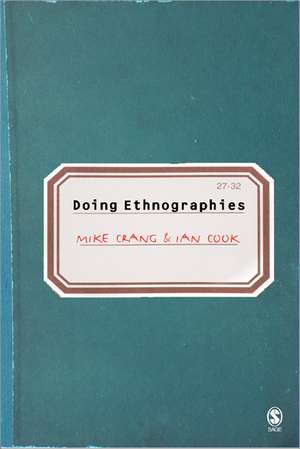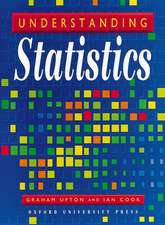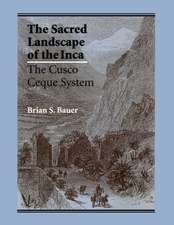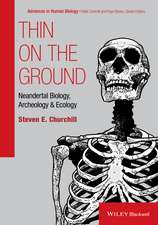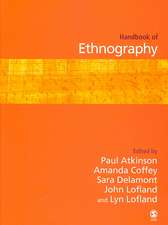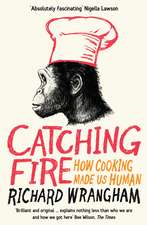Doing Ethnographies
Autor Mike A Crang, Ian Cook et alen Limba Engleză Paperback – 11 mar 2007
| Toate formatele și edițiile | Preț | Express |
|---|---|---|
| Paperback (1) | 424.96 lei 6-8 săpt. | |
| SAGE Publications – 11 mar 2007 | 424.96 lei 6-8 săpt. | |
| Hardback (1) | 1182.51 lei 6-8 săpt. | |
| SAGE Publications – 20 mar 2007 | 1182.51 lei 6-8 săpt. |
Preț: 424.96 lei
Preț vechi: 499.95 lei
-15% Nou
Puncte Express: 637
Preț estimativ în valută:
81.33€ • 84.26$ • 67.87£
81.33€ • 84.26$ • 67.87£
Carte tipărită la comandă
Livrare economică 21 martie-04 aprilie
Preluare comenzi: 021 569.72.76
Specificații
ISBN-13: 9780761944461
ISBN-10: 076194446X
Pagini: 256
Dimensiuni: 156 x 234 x 15 mm
Greutate: 0.39 kg
Ediția:1
Editura: SAGE Publications
Colecția Sage Publications Ltd
Locul publicării:London, United Kingdom
ISBN-10: 076194446X
Pagini: 256
Dimensiuni: 156 x 234 x 15 mm
Greutate: 0.39 kg
Ediția:1
Editura: SAGE Publications
Colecția Sage Publications Ltd
Locul publicării:London, United Kingdom
Recenzii
'a casual, easy-to-read style that will appeal to...the many undergraduate and postgraduate students across a wide range of disciplines engaging in some form of ethnographic research... [It] will provide some comfort for the perplexed and should also perplex the comfortable'
Qualitative Research
'Crang and Cook provide a well-written practical guide to doing ethnographic research in the broadest sense of the term...They begin with a useful discussion of what ethnographic research entails... and how it fits in the broader realm of social research in a post-modern context... This book would be a useful resource for students and faculty embarking on an ethnographic research project.'
Choice
Qualitative Research
'Crang and Cook provide a well-written practical guide to doing ethnographic research in the broadest sense of the term...They begin with a useful discussion of what ethnographic research entails... and how it fits in the broader realm of social research in a post-modern context... This book would be a useful resource for students and faculty embarking on an ethnographic research project.'
Choice
Cuprins
Introduction
PART ONE: GETTING READY
Conceptualizing the Subject
Preparing for Fieldwork
PART TWO: CONSTRUCTING ETHNOGRAPHIC INFORMATION
Participant Observation
Interviewing
Focus Groups
Filmic Approaches
PART THREE: PULLING IT TOGETHER
Analysing Field Materials
Writing Through Materials
Go Forth and Do...?
PART ONE: GETTING READY
Conceptualizing the Subject
Preparing for Fieldwork
PART TWO: CONSTRUCTING ETHNOGRAPHIC INFORMATION
Participant Observation
Interviewing
Focus Groups
Filmic Approaches
PART THREE: PULLING IT TOGETHER
Analysing Field Materials
Writing Through Materials
Go Forth and Do...?
Notă biografică
Mike Crang¿s interests lie in the field of cultural geography. He has worked extensively on the relationship of social memory and identity. Within this he focused empirically upon on practices of public and oral history, photography and museums looking especially at examples in the UK and Sweden. This interest feeds into looking at what people make of museums and landscapes and thus the study of tourism more generally. He has an edited collection on this theme that was published in 2009(Cultures of Mass Tourism: Doing the Mediterranean in the Age of Banal Mobilities, edited with Pau Obrador and Penny Travlou, Ashgate) and a previous collection (Tourism: between place and performance, with Simon Coleman, Berghahn 2002) as well as co-editing the journal ¿Tourist Studies¿ for ten years from its inception. He is currrently working on the intersection of film, photography and tourism - through a case study using Captain Corelli and Cephallonia.
From the angle of visual aesthetics and senses of temporality and rhythm, he has become interested in not just issues of preservation and conservation but also their converse - destruction, dereliction and decay - as a collaborator on the ESRC project ¿The Waste of the World¿. On this project he has looked at the figuring of global flows through waste - especially ships in the work of differing photographic traditions. He has also explored the creation of wastescapes in (former) industrial sites, on beaches and between places. Subsequent work on the material cultures of waste is attempting to rethink approaches to the commodity through emphasising unbecoming things - that are both distasteful and unstable.
He is also interested in more abstract issues regarding time-space, action and temporality and co-edited the journal Time & Society from 1997 to 2006. His interests in this area led to a collection on spatiality and social theory (¿Thinking Space¿, edited with Nigel Thrift). The other strand to his work is the analysis of transformations of space and time through electronic technologies, with specific work based around Singapore¿s ¿Wired City¿ initiative and the ¿digital divide¿ in UK cities. He completed an ESRC project on ¿Multi-Speed Cities and the Logistics of Daily Life¿ with Steve Graham and is now working on the notion of a ¿sentient city¿ and the politics of new forms of visualisation and locative computing.
In terms of service to the wider discipline he is a senior editor of the recently published International Encyclopaedia of Human Geography (2009, Elsevier) which was one of the ¿CHOICE Outstanding Academic Titles 2010¿ in the Social and Behavioural Sciences category and co-editor of the Sage Encyclopedia of Urban Studies (2010, with Ray Hutchison, Bob Beauregard and Manuel Aalbers), while being on the editorial board of Environment & Planning A, Geography Compass, Mondes du Tourisme, and previously Social and Cultural Geography. He was on the committee then secretary then chair of the Social and Cultural Geography Research Group of the RGS-IBG (1995-2006) and is curently on the scientific committee of the Societa Italianá di Scienze del Turismo. Within the department he has been Chair of the IT committee, convenor of research clusters, convenor of MA programmes in Space, Place and Culture and European Urban and Regional Change, and Director of the Geography and Cities degree programme and Director of Research (2003-6, 2008-10).
From the angle of visual aesthetics and senses of temporality and rhythm, he has become interested in not just issues of preservation and conservation but also their converse - destruction, dereliction and decay - as a collaborator on the ESRC project ¿The Waste of the World¿. On this project he has looked at the figuring of global flows through waste - especially ships in the work of differing photographic traditions. He has also explored the creation of wastescapes in (former) industrial sites, on beaches and between places. Subsequent work on the material cultures of waste is attempting to rethink approaches to the commodity through emphasising unbecoming things - that are both distasteful and unstable.
He is also interested in more abstract issues regarding time-space, action and temporality and co-edited the journal Time & Society from 1997 to 2006. His interests in this area led to a collection on spatiality and social theory (¿Thinking Space¿, edited with Nigel Thrift). The other strand to his work is the analysis of transformations of space and time through electronic technologies, with specific work based around Singapore¿s ¿Wired City¿ initiative and the ¿digital divide¿ in UK cities. He completed an ESRC project on ¿Multi-Speed Cities and the Logistics of Daily Life¿ with Steve Graham and is now working on the notion of a ¿sentient city¿ and the politics of new forms of visualisation and locative computing.
In terms of service to the wider discipline he is a senior editor of the recently published International Encyclopaedia of Human Geography (2009, Elsevier) which was one of the ¿CHOICE Outstanding Academic Titles 2010¿ in the Social and Behavioural Sciences category and co-editor of the Sage Encyclopedia of Urban Studies (2010, with Ray Hutchison, Bob Beauregard and Manuel Aalbers), while being on the editorial board of Environment & Planning A, Geography Compass, Mondes du Tourisme, and previously Social and Cultural Geography. He was on the committee then secretary then chair of the Social and Cultural Geography Research Group of the RGS-IBG (1995-2006) and is curently on the scientific committee of the Societa Italianá di Scienze del Turismo. Within the department he has been Chair of the IT committee, convenor of research clusters, convenor of MA programmes in Space, Place and Culture and European Urban and Regional Change, and Director of the Geography and Cities degree programme and Director of Research (2003-6, 2008-10).
Descriere
Doing Ethnographies is an introductory and applied guide to ethnographic methods. It focuses on those methods - participant observation, interviewing, focus groups, and video/photographic work - that allow us to understand the lived, everyday world 'out there.' In five chapters it presents a systematic overview of: first principles, preparing for fieldwork, constructing ethnographic information, analyzing field materials, and writing.
